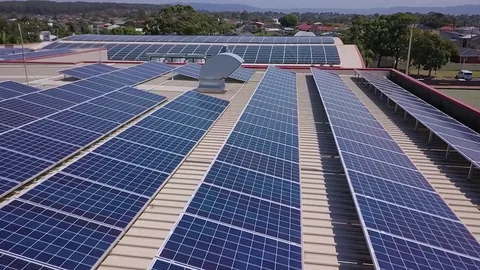As solar energy continues to grow in popularity, many property owners are exploring the benefits of switching to solar power. However, whether you are considering solar panels for your home or your business, understanding the key differences between residential and commercial solar systems is essential. This article delves into the critical distinctions between these two types of solar installations to help you make an informed decision.
Overview of Commercial and Residential Solar Systems
Before diving into the differences, it’s important to define what commercial and residential solar systems typically entail.
- Residential solar systems are designed for single-family homes or small residential units. These systems usually range from 3 kW to 10 kW in capacity and cater to the electricity needs of a household.
- Commercial solar systems, on the other hand, are installed on businesses, industrial buildings, or large facilities. They often exceed 50 kW in capacity and are tailored to meet the higher energy demands of commercial operations.
Size and Scale Differences
One of the most obvious distinctions in the comparison of commercial solar systems vs. residential lies in their size and scale.
- Residential systems are smaller, generally limited by roof space and household consumption. The goal is to offset a significant portion of the home’s electricity use, but rarely to power the home entirely off-grid.
- Commercial solar systems are much larger and designed to generate substantial energy for running business operations, manufacturing, or multiple tenants in a commercial building. These systems often require more extensive design and infrastructure, including ground-mounted panels or large rooftop installations.
Installation and Design Considerations
When comparing commercial solar systems vs. residential, installation complexity is a key factor.
- Residential installations tend to be simpler, with less regulatory hurdles and fewer technical complexities. Solar panels are installed on a single roof, and system components are usually standard.
- Commercial systems require careful engineering and planning, as they may involve multiple arrays, inverters, and integration with existing electrical infrastructure. These systems might also require additional equipment like energy management systems or battery storage to handle peak loads.
Cost and Financial Incentives
Cost is another significant difference between commercial and residential solar systems.
- Residential solar installations typically cost less upfront but offer a smaller overall return due to the limited system size. Homeowners often benefit from federal tax credits and local incentives that reduce the cost.
- Commercial solar systems involve a higher initial investment but can yield greater financial benefits through larger energy savings, tax deductions, and programs such as the Commercial Investment Tax Credit (ITC). Additionally, businesses may have access to special financing options or power purchase agreements (PPAs).
Energy Consumption and Efficiency
The energy consumption patterns of homes versus businesses influence how each solar system is designed.
- Residential users typically have more predictable, lower energy demands, mostly during mornings and evenings.
- Commercial facilities often operate during business hours with heavier energy use, necessitating systems that can produce power consistently throughout the day.
Maintenance and Longevity
Maintenance needs vary as well when comparing commercial solar systems vs. residential.
- Residential solar systems generally require minimal maintenance and are monitored through simple apps or software.
- Commercial systems demand regular maintenance checks, cleaning, and sometimes on-site personnel to ensure optimal performance due to their size and operational complexity.
Conclusion
Understanding the key differences explained in commercial solar systems vs. residential setups is crucial for anyone considering solar energy. While both offer substantial benefits in reducing carbon footprints and energy costs, the scale, design, cost, and maintenance requirements differ significantly. Whether for a home or a business, selecting the right solar system depends on your specific energy needs and long-term goals.

